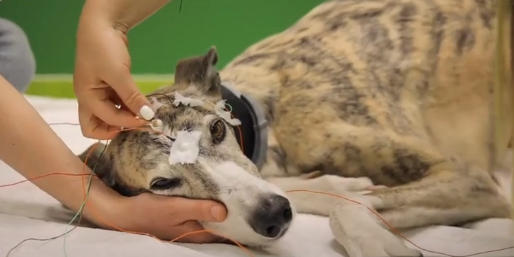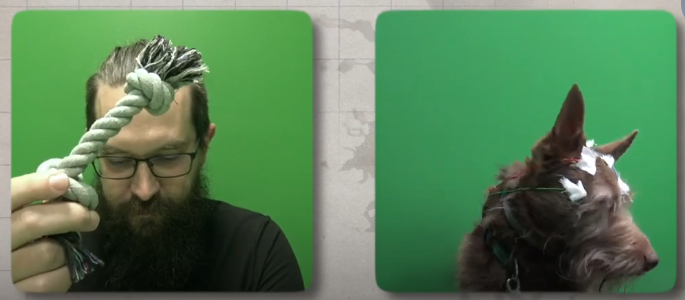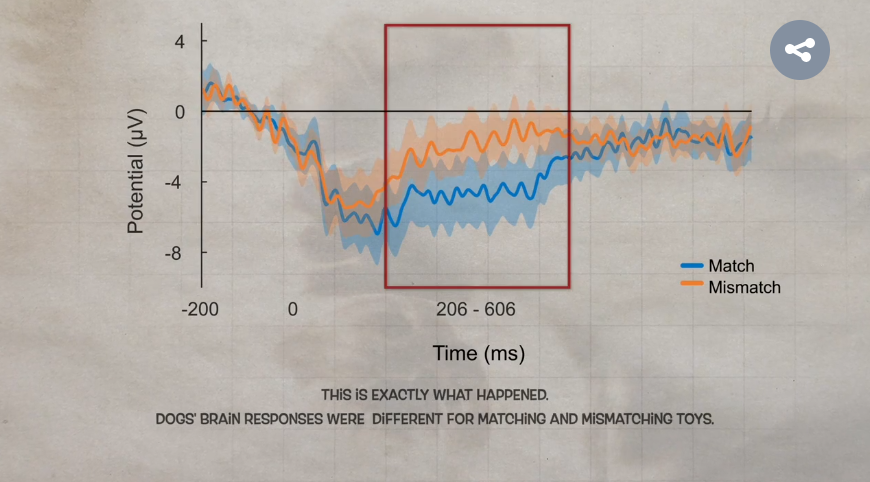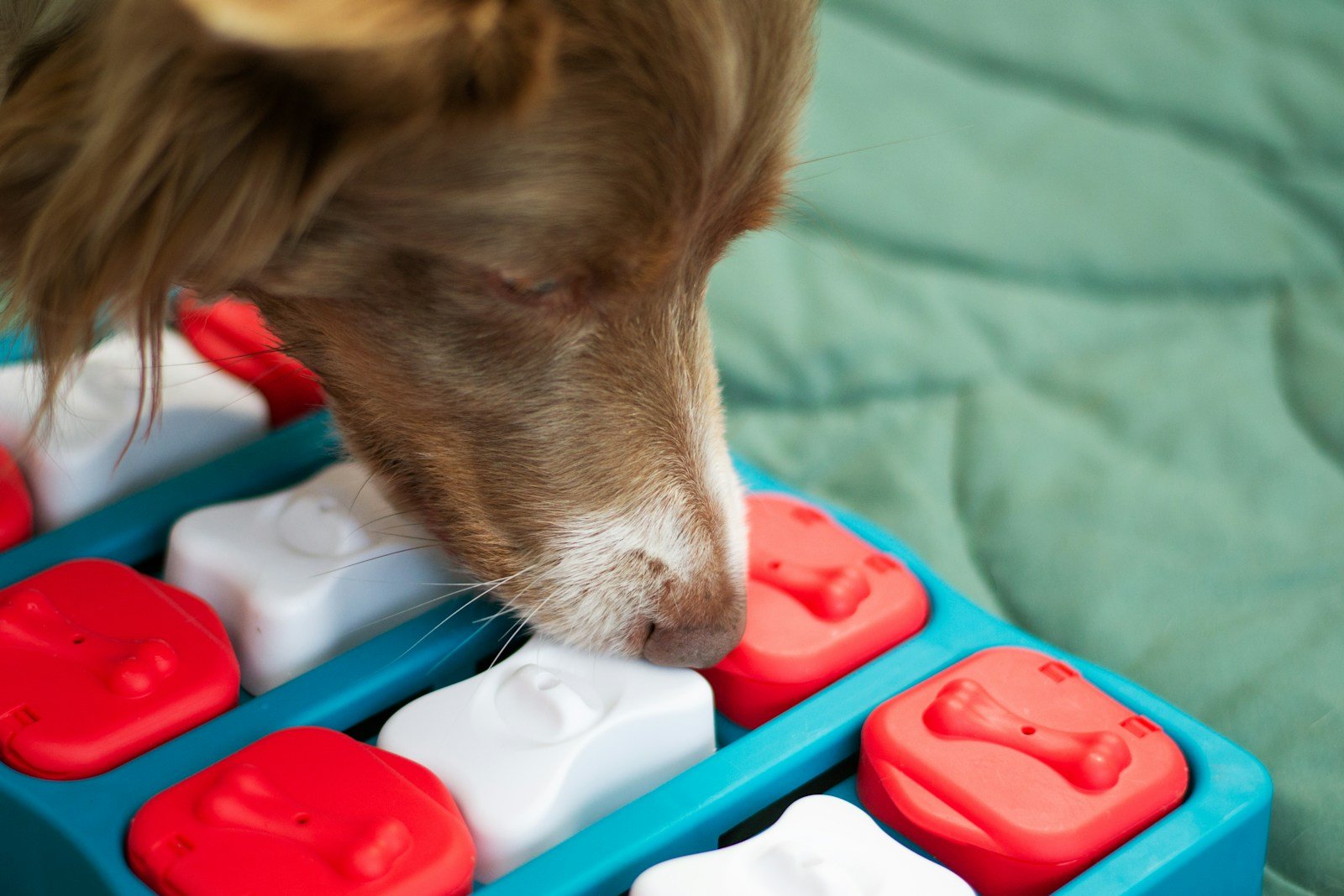Dog owners have long believed that their dogs could understand words for “sit” and “stay” and also understand words for their favorite objects.
If a dog could find a particular object, select it, and bring it back, then dog owners saw this as proof of their dog’s understanding. So saying “go fetch your frisbee” would have their dog fetch the frisbee rather than a ball.
Previous studies had been no definitive way to find if a dog was forming a mental representation of the object. Just performing a trained response to a pattern or sound of the words was not sufficient in itself.
A new study by a team of neuroscientists at the Department of Ethology of the Eotvos Lorand University in Hungary set out to find answers. The study published 22 Marc 2024 in Current Biology was called Neural evidence for referential understanding of object words in dogs.
The researchers wanted to see if a dog could form a mental image of an object upon hearing the word associated with that object. This is known as referential understanding.
Referential understanding would imply that dogs have a higher cognitive ability than previously thought. In fact, to show that dogs have referential understanding would be remarkable given that only humans are known to have this ability.

Dog owners would appear in a video clip where they said the name of their dog’s toy. Then they would then produce an object and show it to their dog. The dog’s brain activity would be measured for both correct and trick objects presented.
In one test, the dog owner says “Joel! Look, frisbee!” but tricks Joel by showing a rope toy instead. Joel’s reaction to this misrepresentation is look away, and the EEG recording is able to measure the response in the brain activity.

There were two different responses in brain activity for a matched and mismatched response. This is the response that humans give in similar tests. The researchers posited that this is evidence of a dog’s ability to form mental representations of objects.
Marianna Boros, a neuroscientist, was the co-lead author of the study. She said: “We expected that if a dog really understands the meaning of the object’s word, it will expect to see that object.”
“And if the owner shows a different one, there will be a so-called surprise reaction in the brain. And this is exactly what we found.”

“Dogs do not only react with a learned behavior to certain words,” continued Boros.
“They also don’t just associate that word with an object based on temporal contiguity without really understanding the meaning of those words, but they activate a memory of an object when they hear its name.”
The study proved that dogs understand words in a referential way just as humans do. It recasts how we think of dogs’ cognitive abilities. In particular, it shows dogs may understand more words than many of their owners once thought them capable of.
“It doesn’t matter how many object words a dog understands—known words activate mental representations anyway, suggesting that this ability is generally present in dogs and not just in some exceptional individuals who know the names of many objects,” said Boros.
For the researchers at Eotvos Lorand University in Budapest, there are other intriguing questions that have emerged from the study. Was this ability innate in dogs, or did they develop referential understanding because of living with humans?
And if dogs always had this cognitive ability, why has it taken so long to prove that dogs have this hitherto unappreciated ability to discern objects in their minds. Many dog owners, though, would say that they already knew this.







